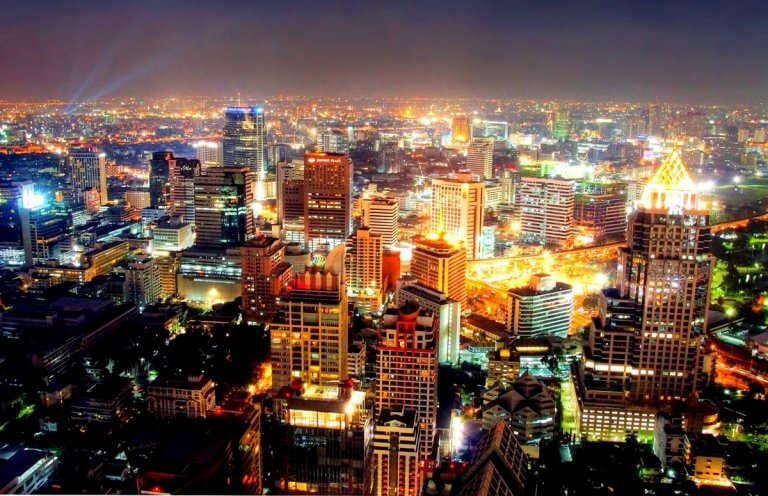
City life: picture it. Bright lights, modern buildings towering into the sky, new discoveries on every corner, an infinite number of people to meet and what seems like an endless supply of jobs.
Whether you stay in your university country, move back home or move to a new country altogether after graduation, you probably think the big city holds all the answers.
You have probably also been told the big city is where ‘all the jobs are’. It’s ingrained in us: if you want a ‘good’ job, you’ll have to move to your country’s capital (or at least biggest) city.
But we disagree and we’ll tell you why.

Where do you see yourself living? Source: GIPHY.
Sure, the country’s capital is bound to have loads of job opportunities but just because there are more jobs per square meter in the city than outside of it, it doesn’t make them any better than the plethora of jobs elsewhere.
And living in a hectic city isn’t for everyone. The hubbub of a large city suits some people down to the ground. They thrive on the 24-hour lifestyle, the buzz and bustle, the endless list of things to do, places to go and people to see.
But for others, the idea of being stuck in a traffic-ridden, polluted, chaotic city along with thousands – even millions – of other people, is not quite so heavenly.
Decided on working in the UK, “I thought I’d have to move to London after university to find a job, as all the opportunities seemed to be there,” recent graduate Zoe Brown told Study International.
“However, to my surprise, my first job offer was actually from a firm down in Portsmouth [a small city in the south of England] and I absolutely love working there now.”
Even if you studied in the big smoke, there is no need to stay there – unless you really want to. It is easy to get sucked into the rat race, to feel like the big city is where you need to be to succeed, but it could actually do you some good to get out of the large-city-living-rush.

Hectic. Source: GIPHY.
Big cities also tend to be expensive. Don’t want to shell out over half your wages on a small room in a dingy flat share each month with a lengthy commute ahead of you each day? Yeah, London, New York or the majority of other large cities in the world might not be for you.
Moving out of the city you may find a better quality of life with cheaper accommodation and living costs.
Anna Merin* who studied in London felt immense relief when she left the chaos of the UK’s capital for a quieter life in Newcastle in the north of England.
“I find that a lot of international students think that they have to move to a big city in the UK, like London or Manchester, after they graduate,” University of Portsmouth Global Director Bobby Mehta told Study International.
“In reality, your degree gives you the opportunity to work in your field in thousands of locations throughout the world!”
“High-level graduate jobs exist in many places, not just the big capital cities, and it is often better for your career and well-being to live and work in an environment that is more you.”
If you limit yourself to one city, you might actually find you limit your career prospects, not the other way around.
Focus on what it is you want to do much more than where you want to do it. If it ends up being in the big city and you like the idea of that, then go for it but just remember you don’t have to limit your search.
Especially in a creative and competitive industry, it’s easy to get caught up in the idea you need to be in the busy hub of New York, London, Sydney, Paris, or Tokyo for example, but in reality there is a whole world of opportunity out there, and so much of it does exist outside that city bubble.
* Not his/her real name.
Liked this? Then you’ll love…
Quiz: What should you do after graduation?
Why it’s okay not to have found your calling before graduation







